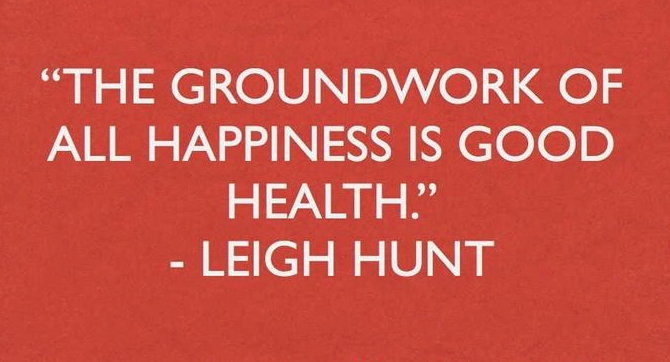|

|
|
"REMEMBERING OUR FALLEN"
PARKERSCROSSROADS, TN: A photo exhibit of Tennessee' Fallen will be on display at the Parkers Crossroads Visitor Center,
February 10-21.
"Remembering Our Fallen," is a reminder of the ultimate sacrifice made by over 100 Tennesseans killed in The War on Terror while wearing our country's uniform.
Volunteers from the American Legion Riders assembled the exhibit. The memorial is about thirty feet in length, eight feet in height, and twelve inches deep. It includes photos of Tennessee soldiers who died in the line of duty in Iraq, Afghanistan, Kuwait, and other locations since September 11, 2001. Several personal notes from family members and friends have been added to the memorial and a book is also available for visitors to leave their thoughts and memories of fallen soldiers.
The exhibit, created by Bill & Evonne Williams of Patriotic Productions in Omaha, is financially sponsored by Bellevue University, Bellevue, Nebraska. The display is on loan to American Legion Riders, and they will be touring the exhibit throughout Tennessee.
The exhibit is open to the public.
|

Read about The Importance of Youth Voices
here.
|
 |
|
Social Group Activities May Help Retirees Live Longer
by Agata Blaszczak-Boxe, Contributing Writer | February 16, 2016 06:55pm ET
Peop
le who belong to social groups such as book clubs or church groups after they retire may live longer, a new study suggests.
In fact, the benefits that
belonging to social groups after retirement has for longevity are comparable to those of regular exercise after retirement, the researchers said.
"If you are in the process of retiring and don't belong to any group, join one," said study author Niklas Steffens, a postdoctoral research fellow in
psychology at the University of Queensland in Australia. "If you belong to only one or two groups, you might want to think about how to make the most of these and what other groups you may want to join."
In the study, the researchers looked at 424 people in England, ages 50 and older, who were about to retire. They asked the people how many organizations, clubs or societies they belonged to, and also asked them about their
overall quality of life and physical health.
The researchers then followed these people for the next six years, and looked at whether the people continued their memberships of social organizations during this time. They also tracked which participants died.
It turned out that 28 of the people in the study died within six years after retiring, and that the strongest predictor of death during the study was a person's age: At age 55, the average risk of death among the people in the study was 1 percent, compared with an 8 percent risk of death at age 65.
But the number of social group memberships that the people maintained after retiring was also a significant predictor of death within the same period of time, according to the study, published Feb. 15 in the journal BMJ Open.
For example, if a person was a member of two social groups before they retired, and maintained these memberships over the next six years, their risk of dying during the study period was 2 percent. However, the risk increased to 5 percent if they gave up the membership of one of the groups, and increased to 12 percent if they gave up both memberships.
Similarly, if a person exercised vigorously once a week before they retired, and maintained this frequency after they retired, their risk of dying over the next six years was 3 percent. However, the risk increased to 6 percent if they reduced the
frequency of exercising to less than once a week, and to 11 percent if they stopped exercising altogether.
"People invest a lot of energy and effort into planning their finances, medical care and physical exercise as they
look ahead to retirement," Steffens told Live Science. "Our research shows that 'social planning' - that is, planning to maintain or develop new social group memberships - may be equally important in promoting health and well-being in retirement."
The researchers noted that the people's physical health at the start of the study, based on their own subjective assessment, was not a significant predictor of death within six years after the people retired.
The new research shows that it really doesn't matter what kind of social group a retired person belongs to, whether it is a church group or a group of people who meet to play cards, as long as it is "an organized, scheduled activity," said Dr. Gisele Wolf-Klein, director of geriatric education at Northwell Health in New Hyde Park, New York, who was not involved in the new study.
However, it is important that people actively participate in
social activities on a scheduled, regular basis. Merely belonging to a gym or a social group, without participating regularly, will not benefit their health, Wolf-Klein added.
The researchers said they don't know for sure why belonging to social groups after retiring appears to be linked to a longer life. However, previous research has shown that belonging to social groups helps people form a sense of identity, and this sense of identity may be critical for people's health, Steffens said.
|
|
"
The only way to do great work is to love what you do."
-- Steve Jobs
|
|
SOUTHWEST RECONNECT COMMUNITY LAUNCHES TO HELP ADULTS RETURN TO COLLEGE
Jackson, February 8, 2016: March 1 will mark the launch of the Southwest Tennessee Reconnect Community, a regionally-based effort focused on increasing the number of adults in the area with a postsecondary credential. The Southwest Tennessee Reconnect community is a program of The Southwest Tennessee Development District and will partner with the CO and the Wayne County Chamber of Commerce to provide adults with free advising, career counseling, support, a personalized path to and through college, and connect community partners in larger statewide degree attainment initiatives.
The Southwest Tennessee Reconnect Community is part of a larger statewide effort, Tennessee Reconnect, to encourage adults to return to college to earn a degree or certificate. Tennessee Reconnect is part of Governor Bill Haslam's Drive to 55 initiative, a statewide effort to increase Tennessee's educational attainment rate from 37 percent to 55 percent by the year 2025. Tennessee Reconnect Communities were established in 2016 by the Tennessee Higher Education Commission in partnership with The Graduate Network and through technical assistance and funding from Lumina Foundation and the State of Tennessee. Currently, over 900,000 adults in Tennessee have at least some college credits but have not yet earned a degree.
"Our goal is to provide high-impact services to adults between the ages of 25-64 in our 13 county service area. There has never been a better time for adults in Tennessee to complete a certificate or degree. Going back to college can be a very worthwhile experience and Southwest Reconnect will be there for an adult looking to 'reconnect' every step of the way," said Cedric Deadmon, Southwest Reconnect Community Director. The Southwest Reconnect Community was awarded a $225,000 grant from the Tennessee Higher Education Commission last year to fund the adult learner outreach and resources.
A regional launch event for the Southwest Tennessee Reconnect Community will be held March 7th-March 11th in Chester, Decatur, Hardeman, Hardin, Haywood, Henderson, Madison, McNairy, Carroll, Crockett, Gibson, Tipton, and Wayne counties. The launch will include what is being called the first "mobile college access" bus in Tennessee. The bus, owned and operated by grant partner, theCO, will be equipped with the latest in technology and wireless connectivity to make serving students in rural areas of Southwest, Northwest, and South Central Tennessee easier. The bus will stop at designated locations in each county for an hour and a half so prospective adult students can speak with college access advisors and engage our higher education partners from across the region.
For more information about the bus tour, location and services offered to adults considering going back to college, contact, Cedric Deadmon, Director of the Southwest Reconnect Community, at 731-668-6448, or visit
www.swreconnect.orgwhen our website launches March 1.
Tennessee Reconnect Communities (TRCs) are locally-based collaboratives focused on empowering adults to complete a postsecondary degree or credential. Each TRC is comprised of local leaders from the community, employers, and higher education institutions, each focused on a localized plan to engage adults in the area. The TRCs provide adults with free advising, career counseling, support, and a personalized path to and through college. TRCs were established in 2016 by the Tennessee Higher Education Commission in partnership with the Graduate! Network and through technical assistance and funding from Lumina Foundation and the State of Tennessee.
If you are interested in participating in the Tennessee Reconnect Community and would like a bus schedule and times, please contact the Chamber of Commerce and we will be glad to send you that information.
| For more information, please contact: Debbie Dunaway
(731) 668-6439
|
|
|
ITS NOT TOO LATE TO SIGN UP!!
Contact the Chamber to learn how you can receive discounts from local businesses when you sign up for The Biggest Loser! (731) 968-2126

|
Contact the Chamber to learn about exercise groups around lexington to help motivate and support you with your health goals!
|

Broadband wants to be sure that every Tennessean's voice is heard to provide the best quality service for you. Please
click here
to take this short survey.
|
Are you in need of a
Yellowbook
? Come by the Chamber Office and get one FREE!
|
|